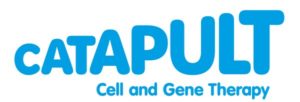Last March, the U.S. Food & Drug Administration (FDA) issued updated guidance related to cell therapy characterization, manufacturing and monitoring. Historically, tools that were developed for gene therapies have been repurposed for cell therapy monitoring; however, they have limitations including repeated validation requirements, limited assay sensitivity and suboptimal quantitative accuracy. Several quantitative assays are now available specifically for cell therapy—providing single-cell resolution for quantifying vector copy number, counting therapeutic cells and tracking individual clones. These assays may help improve cell therapy products at every stage, from process development, to manufacturing and patient monitoring.
In this webinar, attendees will dive into the FDA’s latest guidance for monitoring the quality, safety and efficacy of cell therapies and learn how a single-cell assay combined with high-throughput T-cell receptor (TCR) sequencing can provide a next generation solution for characterizing and tracking cell therapies.
Register to gain more insight into the next-generation tools for cell therapy characterization, manufacturing and monitoring.
As a bonus to all webinar registrants, you’ll get immediate access to the whitepaper, “CAR T Cell Therapy Development: Guidance for Safety, Efficacy and Consistency”. To download, register for the webinar, then click the yellow button, “Download Assets” at the top of this page.
Speakers

Alex Dahmani, Director, Immune Medicine, Adaptive Biotechnologies
Alex Dahmani has extensive experience investigating T-cell responses to antigens. His research focused on human T-cell homeostasis, migration and activation using an advanced humanized mouse model. At Adaptive, he works with biotech and pharmaceutical partners to use Adaptive’s immune medicine platform to discover and develop novel immunotherapies for oncology, infectious disease and autoimmune diseases.

Vincenzo Di Cerbo, PhD, Lead Scientist, Cell and Gene Therapy Catapult
Vincenzo Di Cerbo, PhD, has 15 years of research and development experience within basic science and applied fields. His background is centered on development and qualification of analytical assays for cell and gene therapy products and processes characterization. At CGT Catapult, he is currently leading a program focused on improvements in viral vector bioprocessing applying novel analytics, multi-omics driven approaches and cell engineering.
Who Should Attend?
Translational scientists, biomarker and assay developers, laboratory managers and analysts, directors in business development from the biotechnology, pharmaceutical manufacturing and cell therapy development and/or manufacturing industries.
- Research Scientists
- Research & Development Scientists
- Research & Development Leaders and Team Members
- Laboratory Leaders and Team Members
- Cell Therapy Leaders and Team Members
- Business Development Executives
What You Will Learn
Attendees will:
- Understand the FDA’s latest guidance for monitoring the quality, safety and efficacy of cell therapies
- Review the types of data various assays provide and how they can be used throughout the cell therapy product lifecycle
- Learn how a single-cell assay combined with high-throughput T-cell receptor (TCR) sequencing can provide a next generation solution for characterizing and tracking cell therapies
Xtalks Partner
Adaptive Biotechnologies
Adaptive Biotechnologies is a commercial-stage biotechnology company focused on harnessing the inherent biology of the adaptive immune system to transform the diagnosis and treatment of disease. We believe the adaptive immune system is nature’s most finely tuned diagnostic and therapeutic for most diseases, but the inability to decode it has prevented the medical community from fully leveraging its capabilities. Our proprietary immune medicine platform reveals and translates the massive genetics of the adaptive immune system with scale, precision and speed. We apply our platform to partner with biopharmaceutical companies, inform drug development, and develop clinical diagnostics across our two business areas: Minimal Residual Disease (MRD) and Immune Medicine. Our commercial products and clinical pipeline enable the diagnosis, monitoring, and treatment of diseases such as cancer, autoimmune disorders, and infectious diseases. Our goal is to develop and commercialize immune-driven clinical products tailored to each individual patient.
You Must Login To Register for this Free Webinar
Already have an account? LOGIN HERE. If you don’t have an account you need to create a free account.
Create Account




